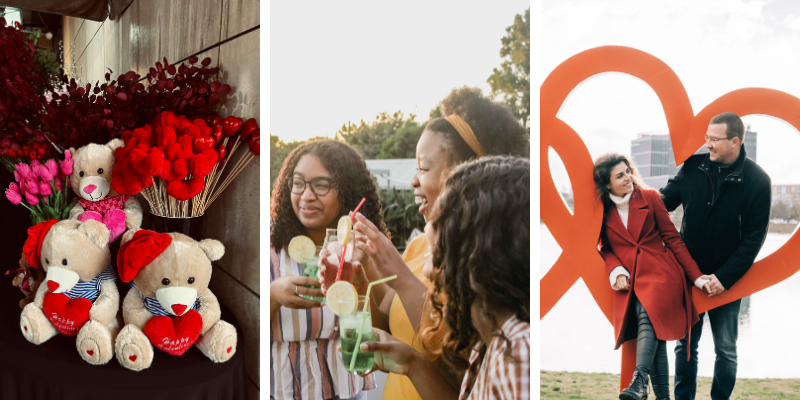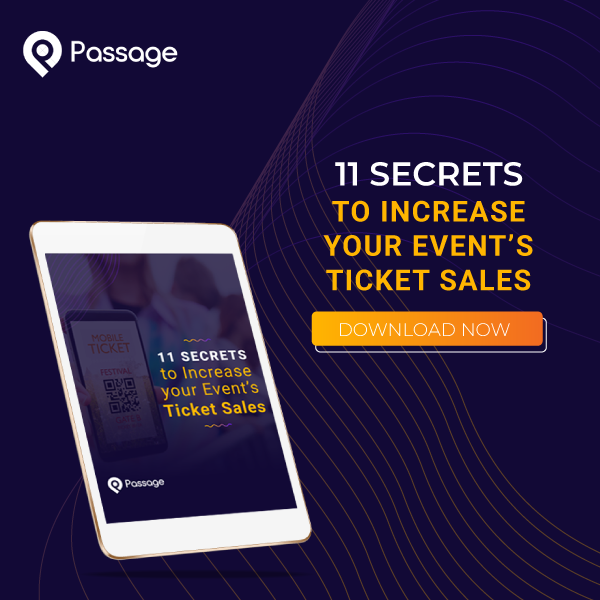Your event ticketing page is way more than just a payment portal. It serves as the primary touchpoint between you, the event organizer, and potential attendees.
And a great event page can significantly impact your ticket sales.
You probably already know that your event page should include details like your refund policy, venue address, and start time. But you might be surprised by the frequently asked questions that most event pages are missing.
Including these answers on your event page not only helps guests find the information they’re looking for quickly, but it also helps the Passage Support team to answer questions when guests email, chat or call us for assistance. Even if guests overlook some of the information, we can help point them in the right direction IF the answer is on your event page.
Let’s dive into the five questions and answers your guests probably wish you had on your event ticketing page.
1. Can I Buy Tickets at the Door?
This is the #1 question we get from guests who write or call in to Passage Support. You might think the answer is obvious, but it might not be so clear to potential attendees.
With more and more events foregoing the traditional box office, and some events selling out well in advance, your guests want to know if they can be spontaneous the day-of, or if they need to plan in advance.
What to Include
-
Clearly state "Tickets will be available at the door" or "Tickets are online only" or "Limited tickets may be available at the door, subject to availability."
-
If door sales are an option, specify the price (it's often higher than online) and payment methods accepted (cash only? cards?).
-
If your event is likely to sell out, strongly encourage advance purchase.
2. Which Discounts Do You Offer?
Military discounts, student pricing, or special pricing for teachers, first responders, and seniors. Each event has their own policy when it comes to discounts; there’s really no one-size fits all. But that can also make things confusing for guests. Particularly if your event advertises a discount for a certain group or category of people, but then doesn’t spell out the details on how to get those discounts on your event page.
Some events require an ID or other proof of eligibility when checking in at the event, and others only offer specials like military discounts in person; not online. What’s your policy?
We’re not suggesting that you need to offer 20 different kinds of special pricing, but including those details on your event ticketing page can make it easier for guests to find the information they’re looking for quickly so they can continue with their purchase.
What to Include
-
List all available discount categories (e.g., Senior, Military, Student, Child).
-
Specify the discount amount or special price for each.
-
Clearly explain how to obtain the discount. Is it an online code? Do they need to present ID at the event? Is it only for in-person purchases?
-
If a discount is advertised elsewhere, ensure the redemption details are crystal clear on the ticketing page.
3. Will There Be Food?
Food and drink are a huge part of the event experience for many people. Whether it’s a quick snack, a hearty meal, or just knowing if they can grab a coffee, attendees want to plan accordingly. Showing up to a multi-hour event expecting food options and finding none can lead to a "hangry" guest, and that’s no fun for anyone. Conversely, someone with dietary restrictions might appreciate knowing in advance if they should eat beforehand.
What to Include
-
Will food be available? A simple "Yes" or "No" is a start.
-
What kind? Specify the type of food and beverages available (e.g., "Food trucks will be on-site," "Snacks and soft drinks available for purchase," "Full bar service," "Complimentary light refreshments").
-
Dietary Options: If you have information on vegetarian, vegan, gluten-free, or other allergen-friendly options, share it!
-
Can guests bring their own? Clearly state your policy on outside food and beverages.
-
Payment: Will vendors accept cash, cards, or both?
4. Where Do I Park?
Ah, parking. The often-dreaded but necessary part of attending an event. Vague instructions or no information at all can lead to guests arriving late, flustered, and starting their experience on a sour note. Nobody wants to circle the block endlessly or get a surprise parking ticket.
What to Include
-
Venue Address (GPS Friendly): This is basic, but ensure it's accurate and easily copy-pasted into map apps.
-
Parking Availability: Is there dedicated event parking? Is it free or paid? If paid, what’s the cost?
-
Parking Locations: Provide a map or clear directions to designated parking lots or garages. Mention if it's on-site or a short walk away.
-
Street Parking: If street parking is an option, mention any restrictions (time limits, permit zones).
-
Public Transportation: Offer alternatives! List nearby bus stops, train stations, or metro lines.
-
Rideshare Info: Suggest a good drop-off/pick-up point for services like Uber or Lyft to avoid congestion.
-
Accessibility: Don't forget to detail accessible parking options and their locations.
5. Is There a Minimum Age? Are There Age Restrictions?
This question is crucial for a wide range of events, particularly those that might be scary (think haunted attractions), those that have more adult themes, or those held in adult venues such as bars or breweries. Parents need to know if they can bring their children, young adults want to ensure they meet entry requirements for evening events, and everyone wants to avoid awkward situations or being turned away at the door. Clarity here prevents disappointment and streamlines entry.
What to Include
-
Explicit Age Policy: Clearly state if the event is "All Ages," "18+," "21+," or has any other specific age restrictions.
-
ID Requirements: If it's an age-restricted event, specify what forms of ID are accepted (e.g., "Valid government-issued photo ID required").
-
Child Ticket Policies: If children are allowed, explain the ticketing policy for them. Are children under a certain age free? Do they need their own ticket? Are there special child ticket prices?
-
Content Advisory: For events with mature themes, even if all ages are technically allowed, you might want to include a content advisory to help parents make informed decisions.
-
Unaccompanied Minors: If applicable, state your policy on unaccompanied minors.
Final Thoughts
By adding these five key pieces of information to your event ticketing page, you'll not only make your guests happier and more informed, but you'll also help them to make purchasing decisions quicker, and ultimately boost your ticket sales.
Remember, the Passage Support team is here to help answer both your questions and your guests’! If you provide detailed information about your event on your ticketing page, we can better support your ticket sales and help guests make the right choices when attending your events.
Need some help setting up your event page? Schedule a call with our support team. We’re here for you!
















